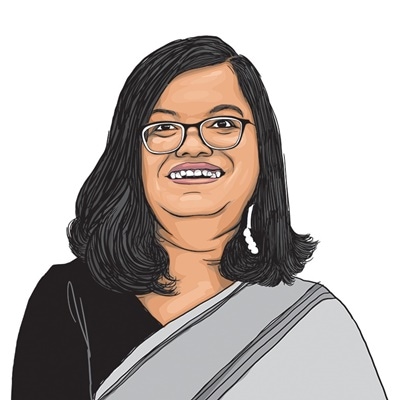Opinion In defence of social sciences: Why we must engage with public to reclaim our relevance
While developing academic scholarship through books and journal articles is important, one must acknowledge that this knowledge is exclusive
 Sociologists should engage with contemporary issues, civil society and policy debates. The same is true for other social scientists (Express Archives)
Sociologists should engage with contemporary issues, civil society and policy debates. The same is true for other social scientists (Express Archives) The past two weeks saw the relevance of social sciences and humanities being questioned in the IITs. The discussions followed the controversy over the circulation of a flyer for a workshop on South Asian capitalism(s) at IIT Bombay. However, this is not the first time that the pertinence of social sciences and humanities has been questioned. Be it the revision of the National Council of Educational Research and Training (NCERT) textbooks, funding cuts for social sciences and humanities and shutting down of Women’s Studies centres — these disciplines have been systematically under attack. This is not limited to India. In the US, Florida and Texas have cut funding for sociology, gender studies, and ethnic studies programmes. In the UK, the University of Kent started cost-cutting by closing its courses in Art History, Anthropology, Health and Social Care, etc. Many social media posts also spread the notion that social sciences are “useless”, “destructive” and “a waste of taxpayers’ money”. In fact, before his death, Charlie Kirk had posted on X that “we need more electricians and less Sociology majors.” These disciplines are also derided for being “not skill-oriented” and “job-ready”.
It is often believed that anyone can write a book on social issues. Expertise, training and rigour in social sciences are seen as redundant. Experts on issues such as caste, gender, race, religion, etc., are not considered important. Celebrities, entrepreneurs, and sports stars become emblems of discourses on feminism, equality and progress. Such developments, however, are contrary to the historical evolution of disciplines like Sociology, which has consciously distanced itself from common sense and general knowledge with specific theoretical frameworks and methodological training. But today, in the internet age, it is all about access to mere information. However, such access does not translate to criticality. Critical thinking requires disciplinary training. People often fall prey to fake and clickbait news. Information and knowledge are not the same thing. Knowledge has, in fact, increasingly become a scarce commodity with the recent Delhi High Court’s ban on Sci-Hub and Libgen. Social sciences are intrinsically involved with public knowledge and interest.
So, how do we fight this push towards irrelevance? Since the relevance of it is being questioned at the IIT level, it is critical to underline that research on gender and caste disparity at these institutions has contributed significantly to debates on inclusion. Data collected in the form of large nationwide surveys, such as the Census, the National Family Health Survey, etc., contribute significantly to questions of demography, public health, and so on. In fact, the IIT model is exemplary in integrating social sciences and humanities with engineering and technical courses. There is a scope to replicate this model in other institutes too. Social sciences are already taught as part of law, policy and management courses, and can be extended to medical and other programmes.
Another way for social scientists is to engage with the public. While developing academic scholarship through books and journal articles is important, one must acknowledge that this knowledge is exclusive. It is read only by members of one’s own disciplinary community, is inaccessible for the majority and often kept behind paywalls. On the other hand, blogs, podcasts, op-eds, etc., are easily and freely accessible to everyone. With the help of social-media tools, digital links can be rapidly circulated. Authors are expected to use jargon-free language to communicate academic knowledge to a wider public. In fact, many of these platforms have sizeable readership, especially among young scholars. These are spaces that can and should be effectively utilised by social scientists to engage with the public.
Expertise cannot simply be measured by academic publications, bureaucratic rankings, citation metrics or academic lectures. There is a need to reclaim the role of expertise by social scientists. Michael Burawoy, in his 2004 presidential address to the American Sociological Association (ASA) titled For Public Sociology had advocated for a Sociology that is political. Sociology cannot remain detached from the public sphere. Sociologists should engage with contemporary issues, civil society and policy debates. The same is true for other social scientists. There is also a need to write and engage with the public in vernacular languages. The public trust in the expertise of social scientists needs to be rebuilt. Matt Wood, in his book Hyper-active Governance: How Governments Manage the Politics of Expertise, argues that the question of how expertise is put to use in modern democracies should be given urgent attention. Disseminating knowledge by writing for the public could be one way to reassert the importance of social sciences.
The writer teaches Sociology in the Department of Humanities and Social Sciences (HSS), Indian Institute of Technology (IIT) Guwahati






